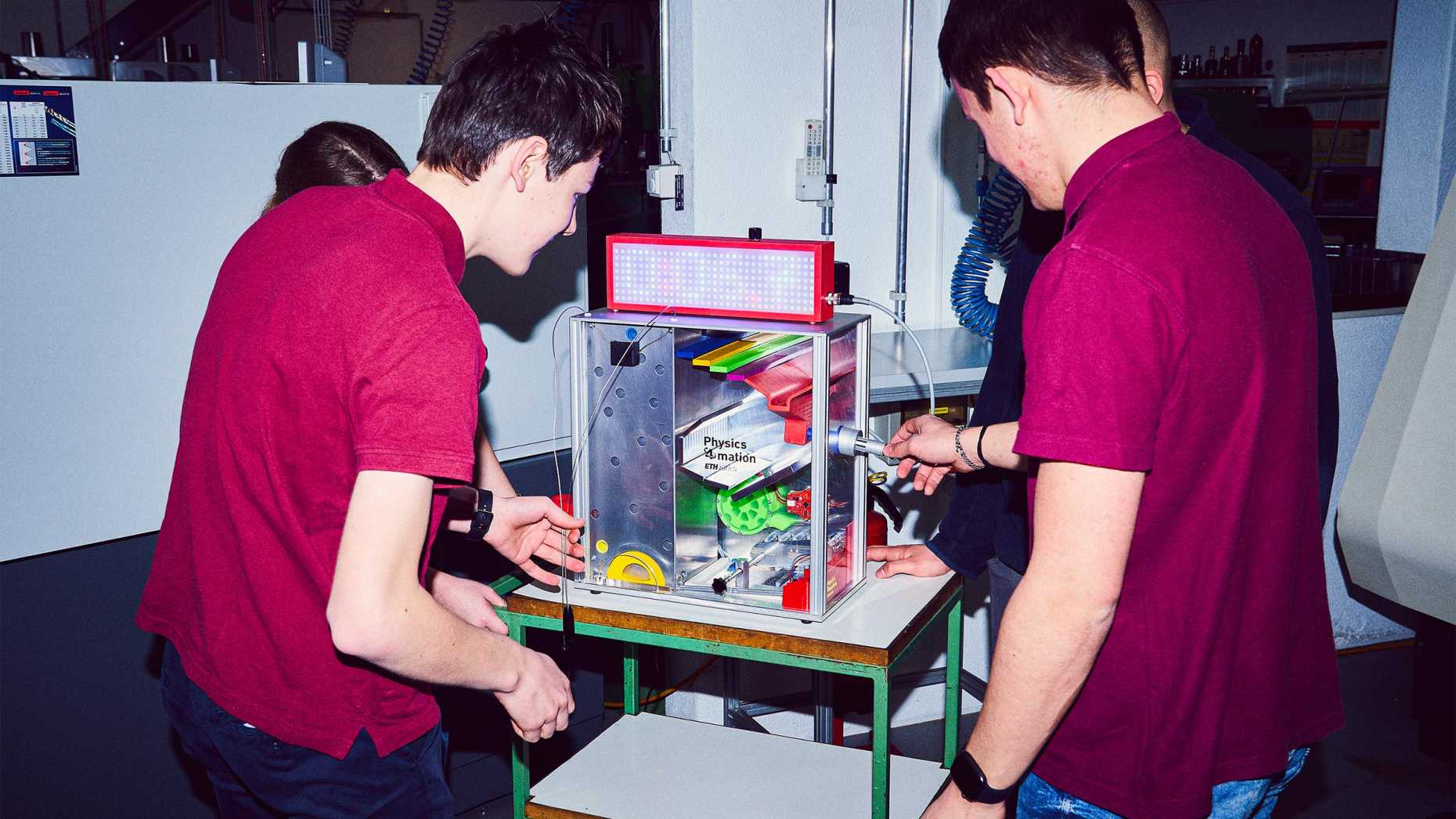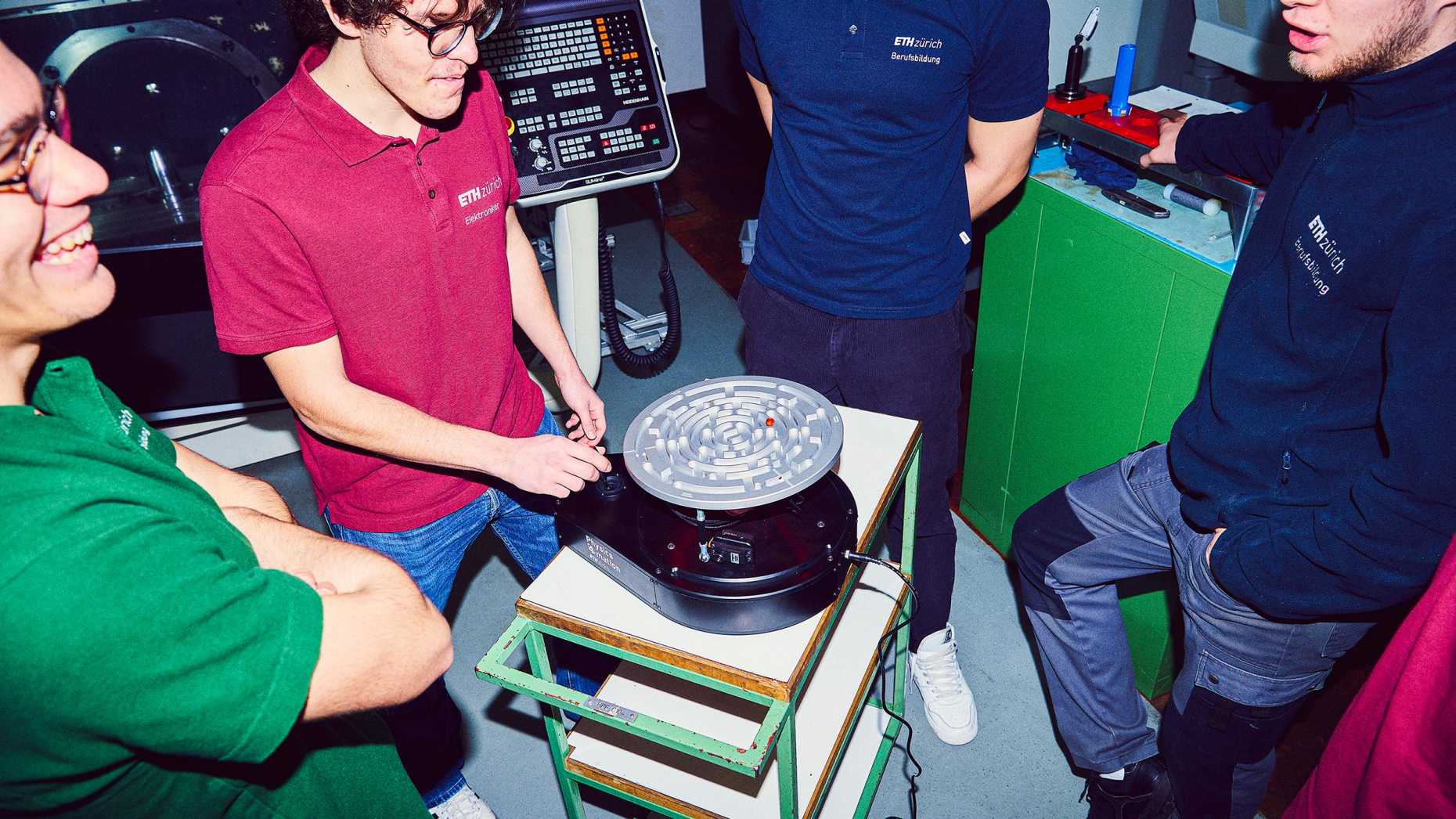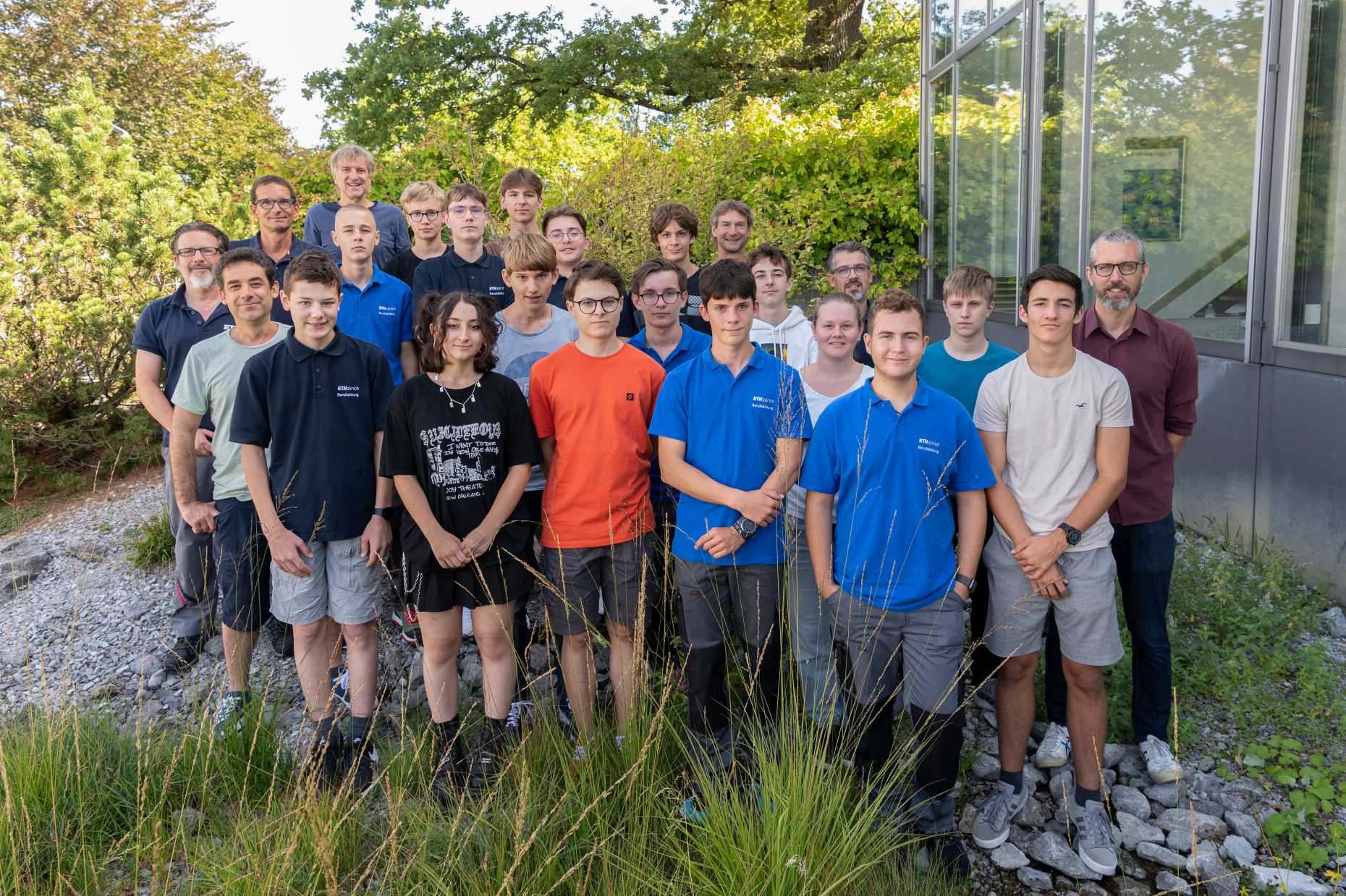Vocational Training
ETH Zurich offers a comprehensive apprenticeship programme in which the Department of Physics plays an important role. About 33 apprentice positions are currently based in the Department of Physics.
Around 50 apprentices pursue their training in the departement, preparing for professions such as polymechanic, physics lab technician and IT technician. The Department of Physics operates a mechanical training workshop as well as electronics and physics technician training laboratories. All training programmes are in German.
A general overview (in German) of vocational training programmes at ETH Zurich can be found here.
Programmes offered at D-PHYS
Summary: Development, assembly and testing of electronic devices.
Duration: 4 years.
For more detailed information, please visit this page on the German version of this website.
Summary: Setting-up, testing, programming and operating computer systems.
Duration: 4 years.
For detailed information, contact details of the responsible persons and of current apprentices, please visit this page on the German version of this website.
Summary: Design and production of equipment used in research.
Duration: 4 years.
For detailed information, contact details of the responsible persons and of current apprentices, please visit this page on the German version of this website.
Summary: Science of the structure and motion of non-living matter.
Duration: 4 years.
For detailed information, contact details of the responsible persons and of current apprentices, please visit this page on the German version of this website.
Summary: Metalworking using the latest technologies.
Duration: 4 years.
For detailed information, contact details of the responsible persons and of current apprentices, please visit this page on the German version of this website.

Interdisciplinary project Physics4mation
Physics4mation was conceived to further develop vocational training in the Department of Physics and to enable interdisciplinary collaboration between trainees. Physics4mation specifically promotes the development of collaborative and project-orientated work. Apprentices are given the opportunity to step out of their professional area of training and acquire important teamwork skills.
What makes Physics4mation special is that productive failure within the project is accepted as part of the journey. This puts a successful learning outcome above a successful project. All trainees from the four professional career paths should take part in Physics4mation once during their training, preferably during their second or third year.
Following the project kick-off meeting, the teams chosen by the vocational trainers have two weeks to collect ideas and then present them. They have to make statements on feasibility, costs and time planning. Once the project has been approved, they have three months to realise it.
The acronym Physics4mation draws from key aspects of the project, such as the affiliation to the Department of Physics and the four professions for which vocational training is offered in the Department of Physics. Christian Richter is responsible for the Physics4mation project.



